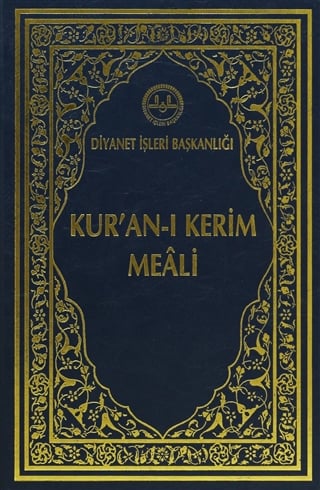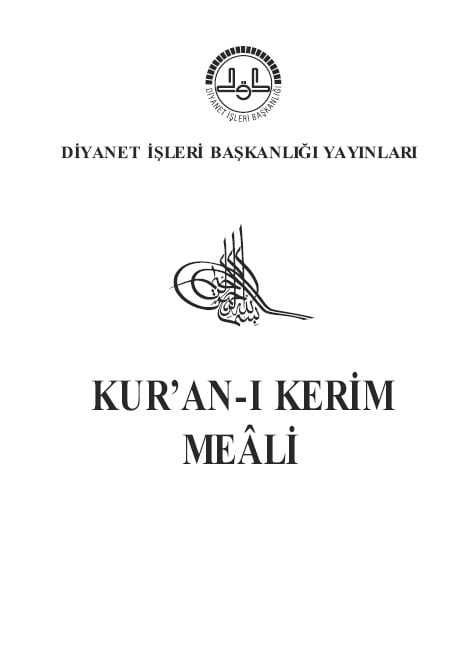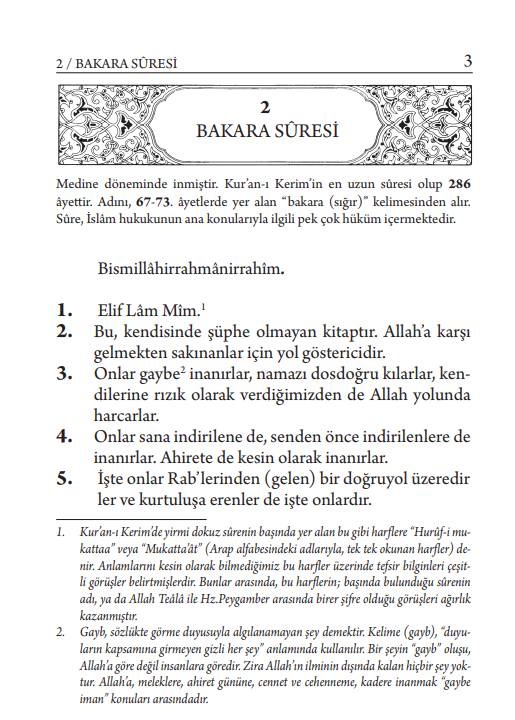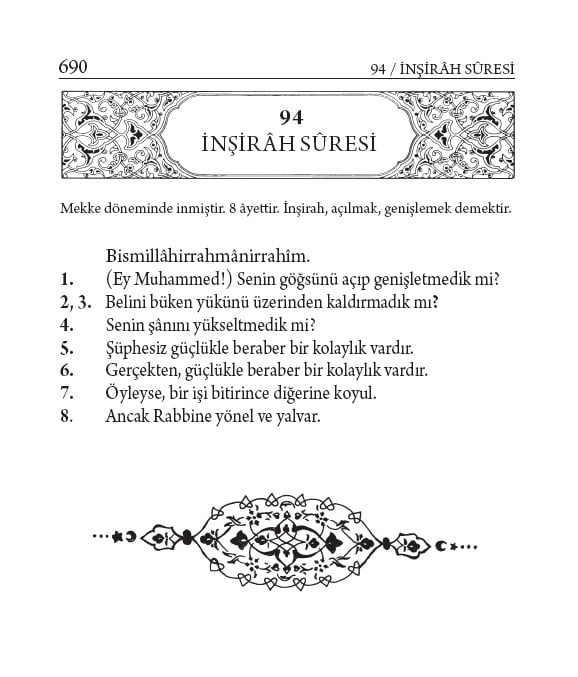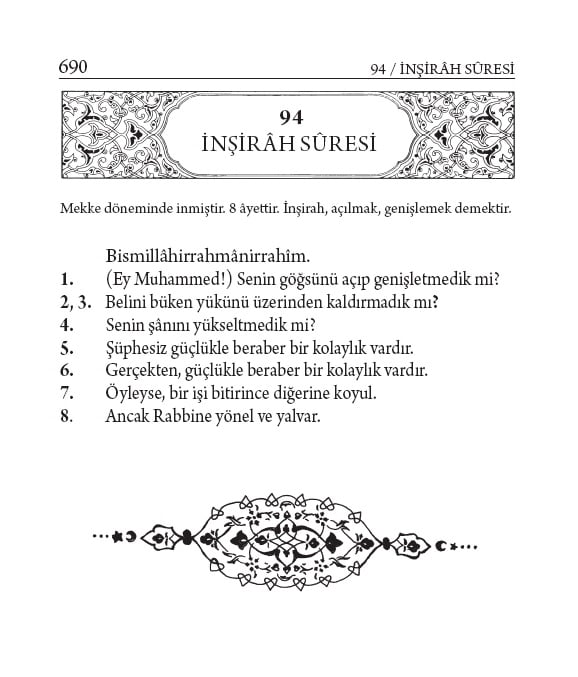According to conservative estimates, at least 160 complete translations (Kur’an mealleri) of the Qur’an into Turkish have appeared between 1914 and 2020, in addition to numerous commentaries (tefsirler). With the exception of translations into Persian and Urdu, this comprises the highest number of published translations of the Qur’an into another language. Furthermore, some of these Turkish translations appear to be a source for further renditions into other languages of the region, such as Armenian, Azerbaijani, Bosnian, Bulgarian, Crimean Tatar, and Russian. For this reason, some of the most popular translations into Turkish can be regarded as important examples of the modern “global” perspectives of Qur’an translation. As part of a general movement to translate Islamic works into Turkish that started in the 1920s, inspired by government policies (which has been described as the “Turkization” of Islam), a number of translations were officially approved by the Turkish Directorate of Religious Affairs (TDRA). For example, after publishing a well-known interpretation entitled Hak Dini Kur’an Dili by Muhammed Hamdi Yazır Elmalılı (d. 1942) in 8 volumes (1935–1938), the TDRA published a new translation with more contemporary wording in 1961 (by Hüseyin Atay and Yaşar Kutluay) which was supplied with quite extensive commentaries.
Over the last few decades, Turkish Qur’an translations have been reprinted or issued in updated editions almost every year: for example, just one translation, by Yaşar Nuri Öztürk, has been issued 115 times between 1993 and 2017. This inspired the TDRA to do their best to to prepare a new, modern and easy-to-read translation. Thus, in 2001, Kur’an-ı Kerim Meali, translated by the Turkish religious scholars Halil Altuntaş and Muzaffer Şahin, appeared. During its first ten years, it was reprinted twelve times, in both small and full size editions, and can nowadays be found on numerous TDRA online resources where it is designated as the official “Diyanet Kur’an Meali” (kuran.diyanet.gov.tr). Despite the fact that the TDRA has promoted a number of other new translations and interpretations in recent years, Kur’an-ı Kerim Meali still remains a widely known work, available both in printed and electronic forms.
Bakara_2.pngWhat makes Kur’an-ı Kerim Meali distinct from other Turkish Qur’an translations is its simple, rather conservative style of commentary, and its orientation towards everyday reading practice: according to the introduction, even approaching the Qur’an in translation is an act of worship that will be rewarded by God (Çünkü Kur’an’ın aslını okumak nasıl bir ibadet ve taat ise meâlini okumak da sevap kazandırıcı bir iştir). The “meaning” (meâl) of the Qur’an is regarded as “conveying the general sense [of the Qur’anic verses] and their overall meaning”. However, as the official introduction also points out, verses related to theological doctrines, human rights, and social and ethical issues, as well as references to historical events and prophetic legends, need special references to the tafsir sources in order to be fully understood.
Kur’an-ı Kerim Meali is unusual in that it opens with a quite extensive thematic index, which is located at the end of almost all other contemporary translations. Every sura is prefaced with a short introduction outlining the content, and the style of the wording preserves some Arabic expressions, such as Bismillâhirrahmânirrahîm, and uses the primary Qur’anic forms for Arabic words that also exist in Turkish (like hamd instead of hamt, and other common variants). Short insertions in brackets, found in almost half of the verses, make the translation lend a literary flow to the Text, destined for everyday reading as a practice. To make the text more accessible to all levels of readership, no tafsir discussions are cited in the commentaries, and the only references provided are some hadiths (with no source mentioned) and intra-Qur’anic links. Perhaps the most interesting aspect of this translation is the way that some of the short suras seem to have been deliberately rendered into Turkish without any preservation of the verse order. For example, for Surah al-Nâs the translation provides: “De ki: “Cinlerden ve insanlardan; insanların kalplerine vesvese veren sinsi vesvesecinin kötülüğünden, insanların Rabbine, insanların Melik’ine, insanların İlâh’ına sığınırım” The verse order thus appears to be significantly changed from the original Arabic, with (the final) verse 6 now beginning the sura, followed by verse 4 and 5, then verses 2 and 3, ending with verse 1, to give something approximating: “Say: ‘From Jinn and Men, From the mischief of the insidious Whisperer, who whispers delusions into the hearts of men, to the Lord of mankind, the King of people, I take refuge in the God of people’”. It is also unclear in this example why Rabb is used in place of the Arabic Ilâh in verse 3, while İlâh is used in place of the original Arabic Rabb in verse 2.
What makes the translation more eloquent than many others is the attempt to replicate the rhyme endings for some of the Meccan suras: thus the –an ending in “Al-Raḥmān” (55) is conveyed through the use of a form of –i (“Rahmân, Kur’an’ı öğretti. İnsanı yarattı. Ona beyanı (düşünüp ifade etmeyi) öğretti”), while for the –in ending in “Al-Tīn” (95), –un and –ik used (“Tîn’e ve zeytûn’a andolsun. Sinâ dağına andolsun, Bu güvenli şehre (Mekke’ye) andolsun ki, Biz, gerçekten insanı en güzel bir biçimde yarattık. Sonra onu, aşağıların aşağısına indirdik”). This feature is unusual, since most translations published with the approval of Islamic religious institutions opt for the “correct” rendition of theological and ritual issues in preference over any kinds of Qur’anic poetics, not least because the “form” of the Text is traditionally regarded as a feature of Qur’anic inimitability (iʿjāz al-Qur’ān). However, this literary approach to the Text, and the tranlsators’ focus on readability, are two of the reasons that the translation has gained such popularity: apart from being popular with a non-academic readership, it is also frequently used as a reference work for scholarly quotations from the Qur’an in Turkish.
Mykhaylo Yakubovych
